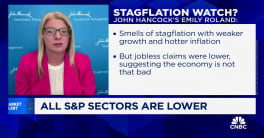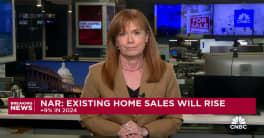Freddie Mac and its Office of the Chief Economist took on the doomsayers in its January 2006 Economic Outlook released late last week and concluded that the housing bubble is not going to burst.
It's not that Freddie Mac hasn't said this before, and its statement last week
was less than a ringing endorsement for a soft landing, but as housing sales
and starts achieved record-breaking levels of 7.48 million units and 1.73 units
respectively in 2005; prices achieved a peak 14 percent year-over-year increase
in the second quarter of 2005; and the median price of a home in America reached
$215,000, the conventional wisdom has more and more predicted a sudden and swift
come-uppance for homebuyers and investors alike. Adding to the general unease
about the housing market are interest rates which are slowly
moving upward and the fact that homeowners have pulled over $2 billion in equity
from their homes, leading residential mortgage debt to increase 62 percent over
the last five years.
So Freddie's take is soothing. According to the report, "Anecdotal evidence
of a decline in housing market activity has led some to speculate that a crash
in home prices is inevitable." The crash scenario is fueled by the
theory that home prices have reached a level driven by speculation that is unsustainable
in real-world terms; therefore, a substantial adjustment is needed to return
home prices to "normal" levels. But, Freddie states, countering this unhappy
view is the possibility that the increase in housing prices is being driven
by economic fundamentals. That is, increasing income, employment, and population
growth coupled with limited land, low interest rates, and construction cost
increases (attributable in part to the many natural disasters that have plagued
the country over the last few years) have quite naturally driven prices higher.
This view, Freddie says, would lead to an expectation that any housing price
decline will also be driven by fundamentals and then only in some local markets
or market segments like condos or high-end homes.
Concern about the possibility of a slightly inverted yield curve - where short term interest rates are higher than long-term rates, should be tempered by positive economic signals such as low unemployment, projected robust GDP growth this year and inflation projections in the vicinity of 2.5 percent.
Based on the decline in expected inflation and the Federal Reserve's signals that it may have temporarily halted its regular quarter-point rate increases, Freddie lowered its interest rate forecasts by10 basis point from last month's projections to an average of 6.4 percent over the year for 30-year fixed-rate mortgages. Because of the inversion of the yield curve, mortgage lenders will likely continue to discount initial rates for ARMs so that they remain around one percentage point lower than fixed rate loans.
Even with the deep discounts, ARMs will continue to lose market appeal this year, falling from the 31 percent market share they held (on average) through 2005 to around 27 percent in 2006. Interest only varieties of these loans will continue to be popular in high priced markets where homebuyers are struggling to qualify for loans. These interest only loans currently have a 30.6 percent share of the ARM home purchase market.
Housing starts will fall around 9 percent to 1.90 million units in 2006 but this will still make the year the third best in history. Likewise home sales, which are guaranteed to set a record for 2005 of around 7.48 million units when all numbers are in, will slow to 7.10 million units this year; but again still the third highest year on record.
Interest rate gains will slow but not stop house price appreciation. When 2005 figures are in year-over-year appreciation is expected to be 10.9 percent but will slow to around 7 percent in 2006.
In spite of rising rates, refinancing will remain strong, in part because of the number of ARMs that are due for interest rate adjustments this year. Mortgage originations are expected to reach 2.47 trillion with 32 percent accounted for by refinancing. Total volume in 2005 will be around $2.86 trillion with 44 percent attributable to refinancing.
The report concludes: "Without question America's joy ride in the housing market is coming to an end. However, a slowdown from record highs does not necessarily lead to a crash. Conditions are favorable for a soft landing, perhaps with a little turbulence on the approach."







